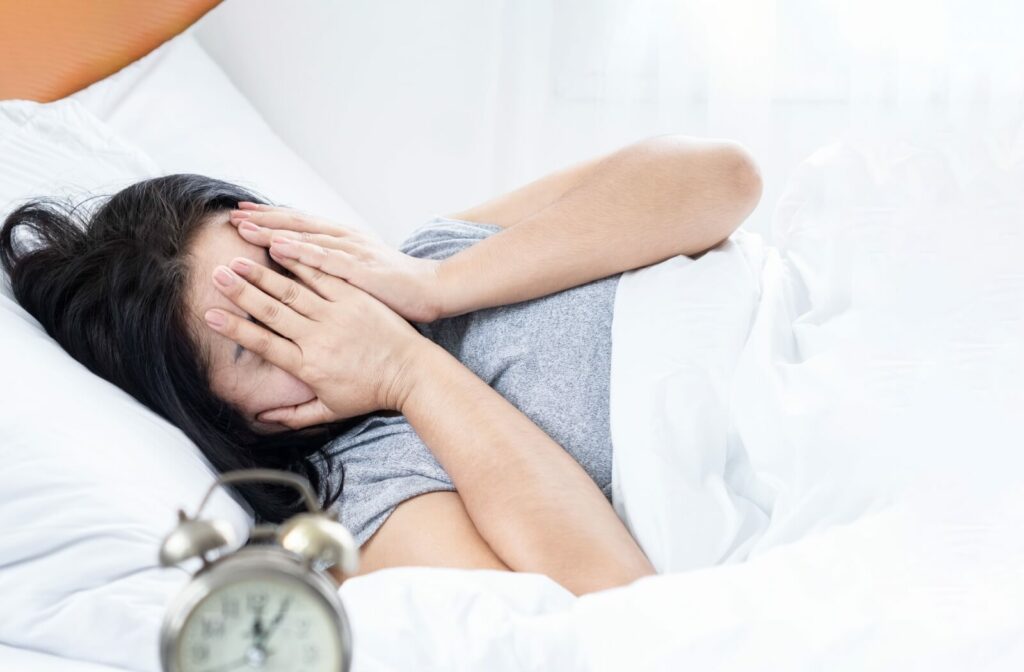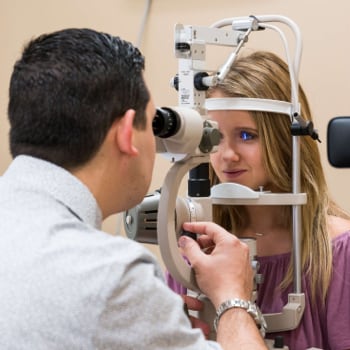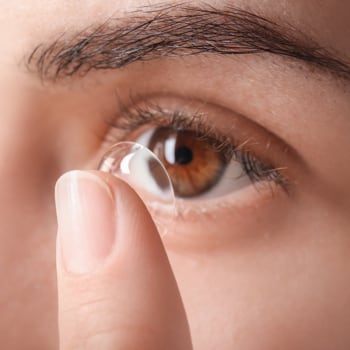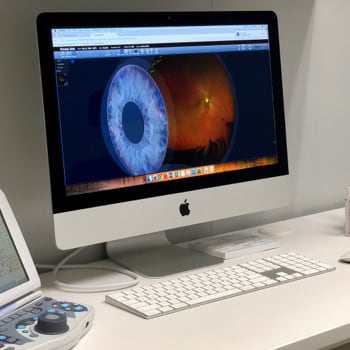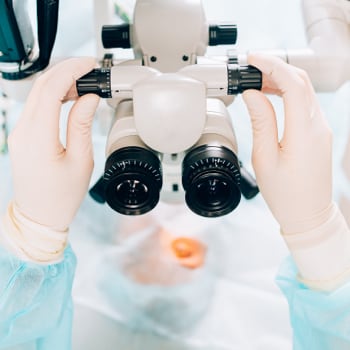Waking up with dry, scratchy eyes can put a damper on your morning routine. If you find yourself frequently asking, “Why are my eyes so dry in the mornings?” you’re not alone. Many people experience dry eyes, particularly upon waking.
Morning dry eye can be a consequence of several things, including nocturnal lagophthalmos, sleeping with your contacts in, various environmental factors, and some medical conditions. This blog post will explore the reasons behind morning dry eye and offer some solutions to help you start your day with clear, comfortable vision.
Next time you book an eye exam, we hope you’ll be doing so with happier eyes.
Common Causes of Morning Dry Eye
1. Reduced Tear Production at Night
During sleep, your tear production naturally decreases, which is a normal part of your body’s nighttime physiology. Tears are essential for keeping your eyes moist and comfortable, as they provide lubrication and protection against irritants. Without adequate tears, your eyes may feel dry and irritated when you wake up, which can cause discomfort or even redness. This is why it’s important to stay hydrated and consider using artificial tears if you experience persistent dryness.
2. Inadequate Eyelid Closure
Some people sleep with their eyes partially open, a condition known as nocturnal lagophthalmos. This can cause the surface of your eyes to dry out overnight, leading to discomfort and irritation in the morning. If not addressed, this condition can result in more serious issues like eye infections or damage to the cornea.
Treatments range from using eye ointments and humidifiers to wearing special eye masks designed to keep the eyes closed during sleep. If you suspect you have nocturnal lagophthalmos, it’s a good idea to consult with an eye specialist for proper diagnosis and management.
3. Contact Lens Use
Wearing contact lenses, especially overnight, can contribute to dry eye. When you sleep with your lenses in, they can absorb moisture from your eyes, leaving them dry and irritated when you wake up. Additionally, the reduced airflow to your eyes while you sleep can exacerbate pre-existing dryness.
To mitigate such effects, it’s important to use lubricating eye drops and follow your optometrist’s guidelines for contact lens wear.
4. Environmental Factors
The environment you sleep in can also play a significant role in your eye health. Low humidity, air conditioning, or heating can dry out the air in your home and—consequently—your eyes, leading to discomfort and irritation. This dryness can be exacerbated if you already suffer from dry eye syndrome or allergies.
Additionally, sleeping with a fan blowing directly on your face can make dryness worse, further disrupting the comfort of your sleep. In order to maintain optimal eye comfort, It’s important to create a sleep-friendly environment with balanced humidity levels.
5. Medical Conditions
Certain medical conditions, such as blepharitis (inflammation of the eyelids), meibomian gland dysfunction (MGD), and Sjögren’s syndrome can affect tear production and lead to dry eyes.
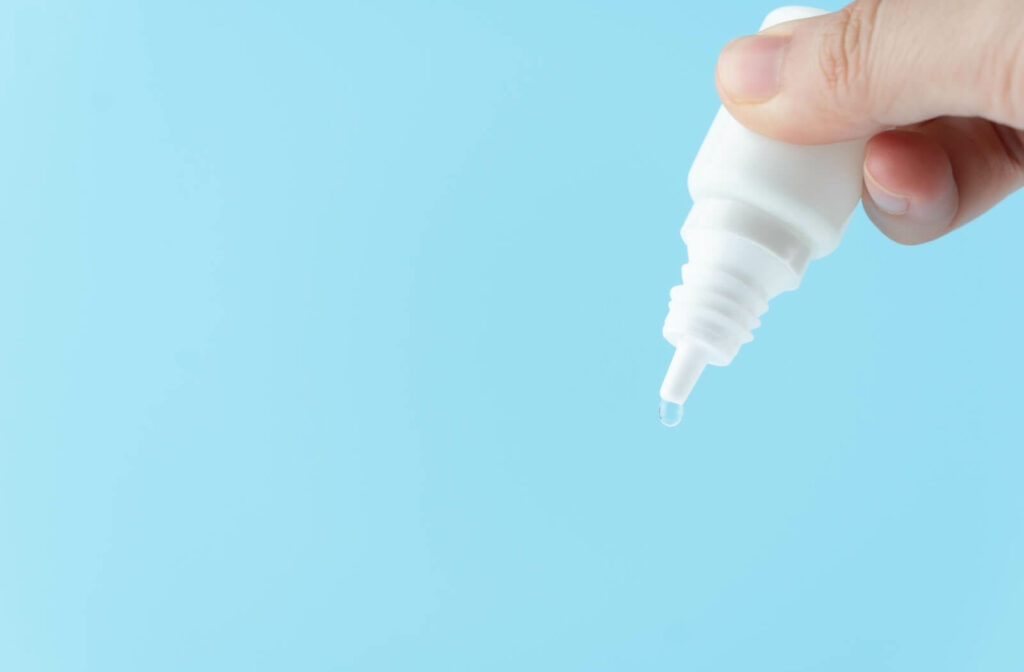
Solutions for Morning Dry Eye
1. Use a Humidifier
Adding moisture to the air with a humidifier can help prevent your eyes from drying out overnight. This is particularly helpful in arid climates or during the winter, when indoor air tends to be drier.
2. Apply Artificial Tears Before Bed
Using lubricating eye drops before you go to sleep can help keep your eyes moist throughout the night. Look for preservative-free artificial tears for the best results.
3. Ensure Proper Eyelid Closure
If you suspect that you sleep with your eyes partially open, talk to your doctor about possible solutions. Sleeping with partially open eyes might be more common than you expect, and can lead to dry eyes or discomfort. Your doctor may recommend using an eye mask, which can help block out light and keep your eyes closed, or using an ointment to keep your eyes moist throughout the night.
Additionally, they may suggest other treatments or adjustments to your sleeping environment to improve your overall sleep quality.
4. Take Care of Your Contact Lenses
If you wear contact lenses, make sure to follow proper lens care guidelines. Consider switching to daily disposable lenses and always remove your lenses before bed to give your eyes a break and reduce dryness.
5. Maintain Good Eyelid Hygiene
Practicing good eyelid hygiene can help prevent conditions like blepharitis and MGD. Clean your eyelids regularly with a gentle cleanser to remove any debris or bacteria that could contribute to dry eyes.
6. Consult a Professional
If your dry eyes persist despite trying the solutions above, it may be time to consult an eye care professional. They can conduct a thorough examination and recommend treatments tailored to your specific needs.
The Path Towards Dry Eye Management
Morning dry eye can be an annoying and uncomfortable way to start the day, but understanding the causes of dry eye and implementing proven solutions can help alleviate the problem. By taking proactive steps to care for your eyes, you can wake up with clear, comfortable vision and enjoy a more pleasant start to your morning.If you’re struggling with persistent dry eyes, don’t hesitate to book an appointment with one of our eye care professionals for personalized advice and treatment options.

